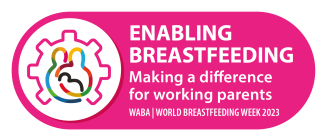Social Media post
- Our social media posts contain messages that reflect the #WBW2023 theme, which you can use/adapt on your own social media channels.
- For each post, we have included proposed graphics – click on the hyperlinks to access these graphics and include them in your post.
- Each post focuses on an issue related to the theme – Enabling breastfeeding: Making a difference for working parents
- Each post has been catered to the specific channel/platform stated, utilising specific hashtags and tags, as well as considering word count limitations. All you need to do is copy and paste these posts in your respective social media channels.
- Please include the suggested hashtags/tags in your post, so we can find and share your posts to amplify our voices!
TWITTER & INSTAGRAM
VISUAL
Working mothers in particular should receive #breastfeeding counselling and support during both the antenatal and postnatal period, to build their confidence and skills to enable them to breastfeed in the face of challenges.
This #WBW2023, let’s make a difference for working parents & enable breastfeeding!
Working mothers should receive #breastfeeding counselling & support during antenatal & postnatal period, to build their confidence & skills to enable them to breastfeed in the face of challenges.
This #WBW2023, let’s make a difference for working parents & enable breastfeeding!
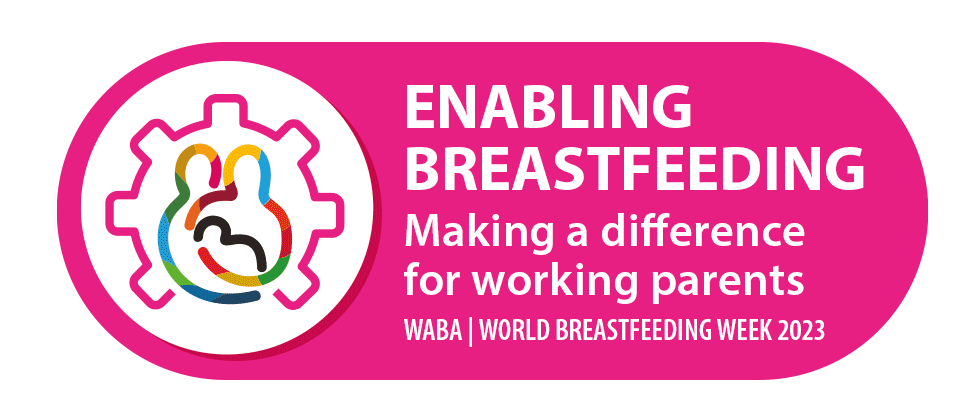
There is a need to improve access to paid maternity leave & other #breastfeeding services for women inside & outside the workplace. Fathers/partners need specified paternal/parental leave to share childcare & domestic responsibilities equitably and reduce the gender gap.
#WBW2023
There is a need to improve access to paid maternity leave & other #breastfeeding services for women inside & outside the workplace. Fathers/partners need specified paternal/parental leave to share childcare & domestic responsibilities equitably and reduce the gender gap.
#WBW2023
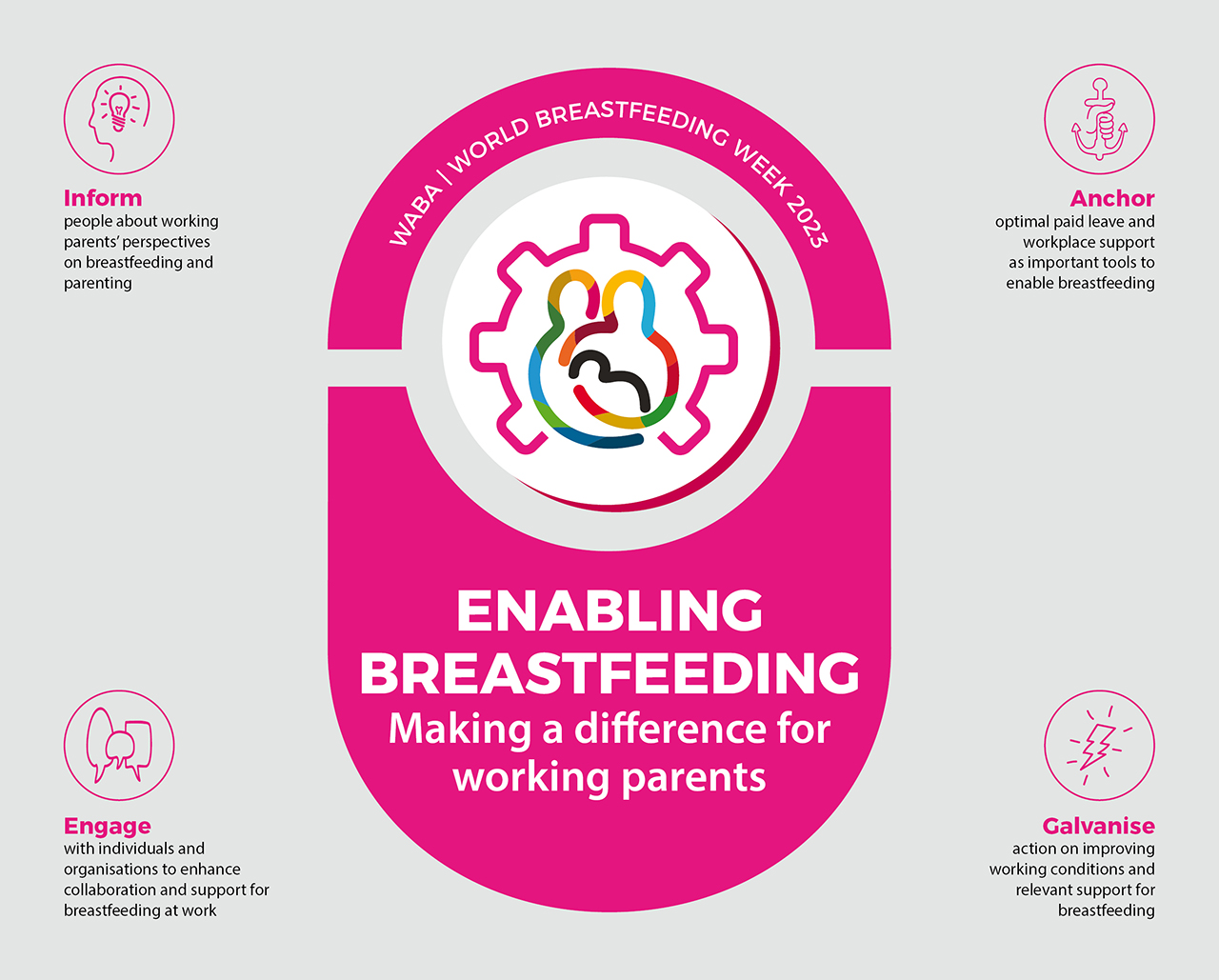
The cost of not #breastfeeding has enormous implications at the individual, family and societal level. The provision of workplace breastfeeding rooms and nursing breaks are low-cost interventions that can improve breastfeeding, job performance and employee retention.
#WBW2023
The cost of not #breastfeeding has enormous implications at the individual, family and societal level. The provision of workplace breastfeeding rooms and nursing breaks are low-cost interventions that can improve breastfeeding, job performance and employee retention.
#WBW2023
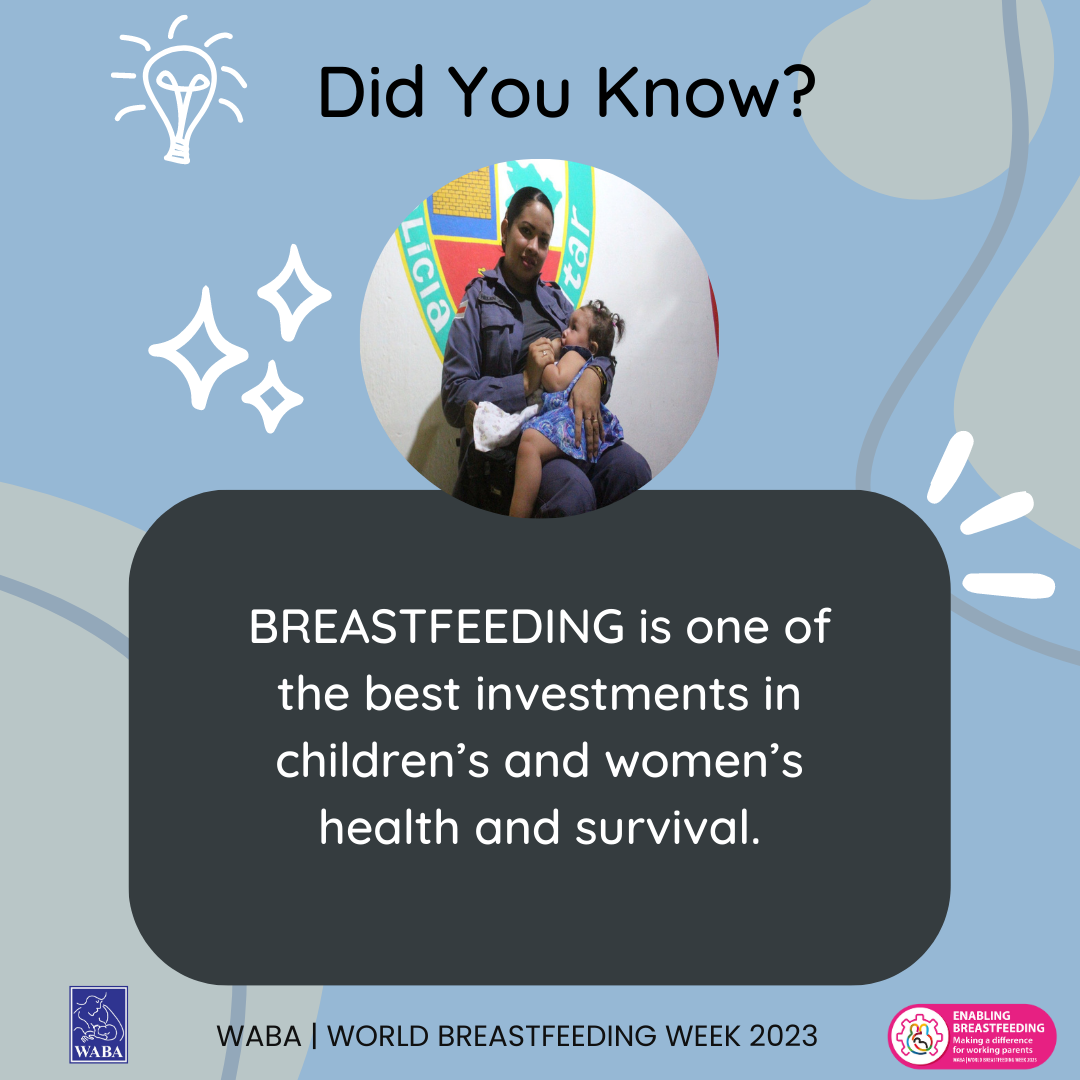
International Labour Organization (ILO) Convention, 2000 (No. 183), allowing not less than 14 weeks of maternity leave. Recommendation No. 191, in 2000, recommending 18 weeks leave and in both, various breaks and facilities.
#WBW2023 #breastfeeding
International Labour Organization (ILO) Convention, 2000 (No. 183), allowing not less than 14 weeks of maternity leave. Recommendation No. 191, in 2000, recommending 18 weeks leave and in both, various breaks and facilities.
#WBW2023 #breastfeeding
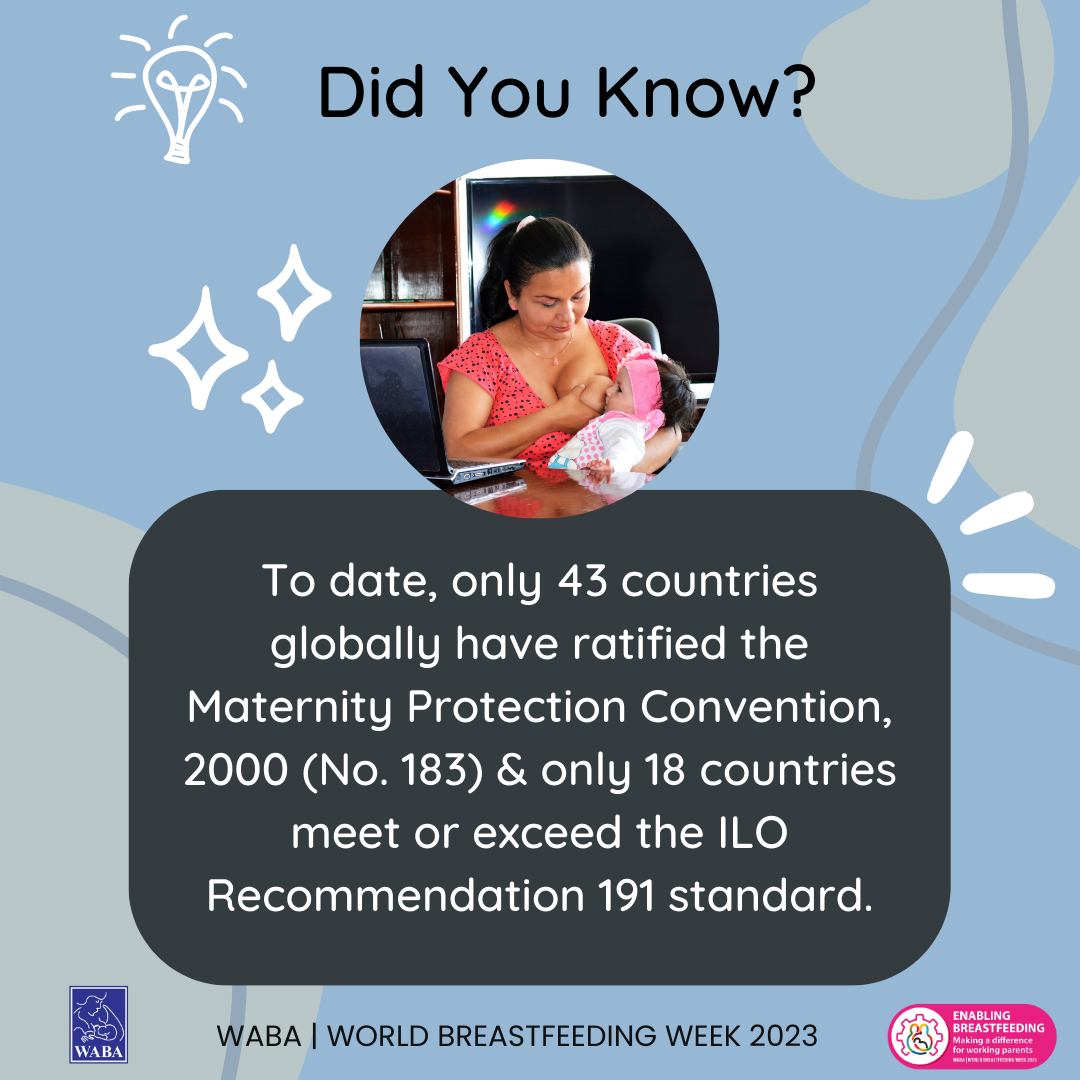
When taken by fathers, parental leave also facilitates greater involvement by fathers in caring for the family, thus promoting sharing of care responsibilities between parents and reducing the burden for mothers who usually take the larger share.
#WBW2023 #breastfeeding
When taken by fathers, parental leave also facilitates greater involvement by fathers in caring for the family, thus promoting sharing of care responsibilities between parents and reducing the burden for mothers who usually take the larger share.
#WBW2023 #breastfeeding

Workplace limitations remain the most common reason for women to never breastfeed or to stop breastfeeding earlier than recommended by WHO, or than they want themselves. Even with adequate maternity and parental leave, lack of support for breastfeeding at the workplace can undermine #breastfeeding.
#WBW2023
Workplace limitations remain the most common reason for women to never breastfeed or to stop breastfeeding earlier than recommended by WHO. Even with adequate maternity & parental leave, lack of support for breastfeeding at the workplace can undermine #breastfeeding.
#WBW2023
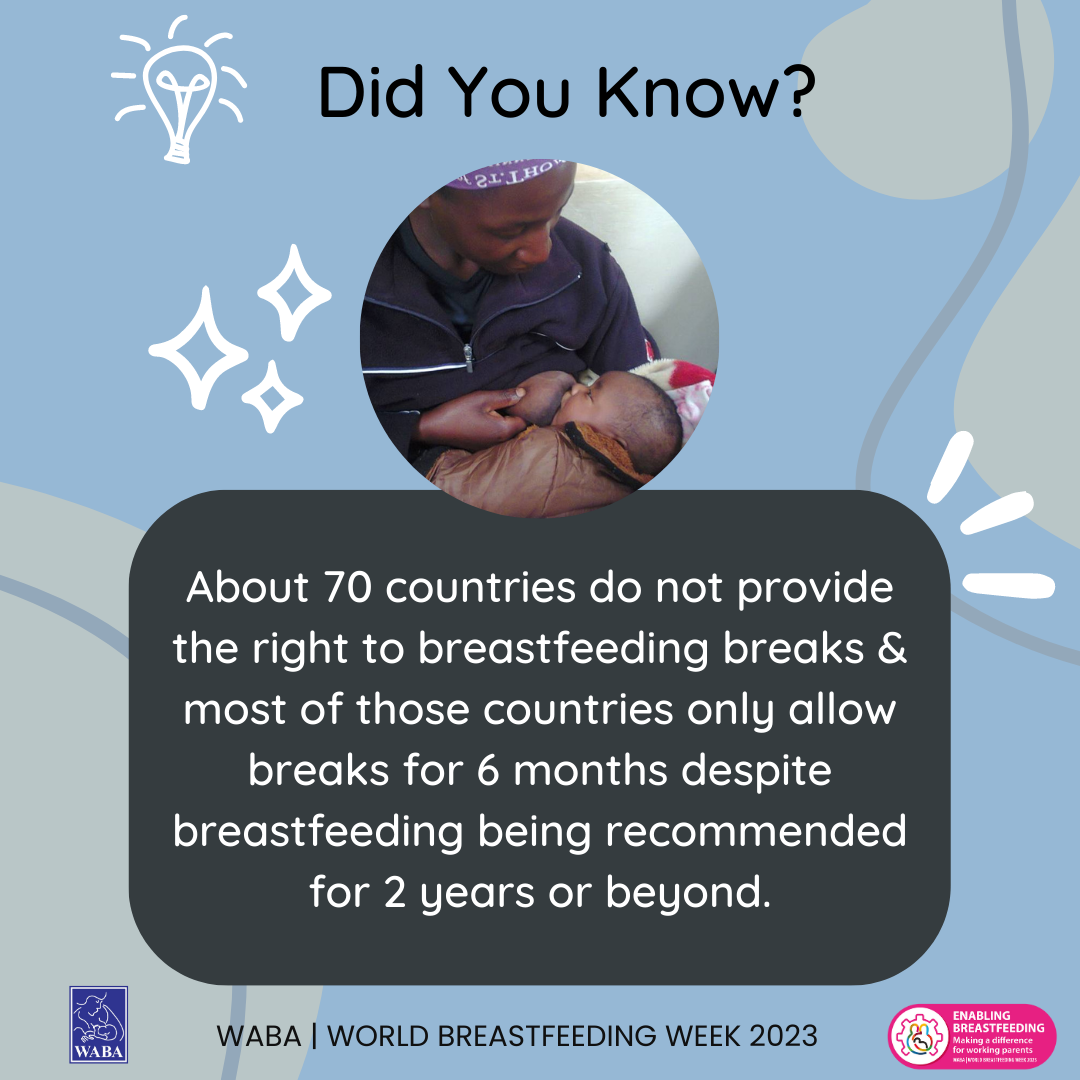
To practise exclusive breastfeeding for six months, all working mothers, in formal as well as informal sectors, public and private, need to be provided with at least 6 months of paid maternity leave and at least 15 days of paternity leave. Parents need to have time following birth to establish and support #breastfeeding.
#WBW2023
To practise exclusive breastfeeding for 6 months, all working mothers, in formal/informal sectors, need to be provided with > 6 months of paid maternity leave & > 15 days of paternity leave. Parents need to have time following birth to establish & support #breastfeeding.
#WBW2023
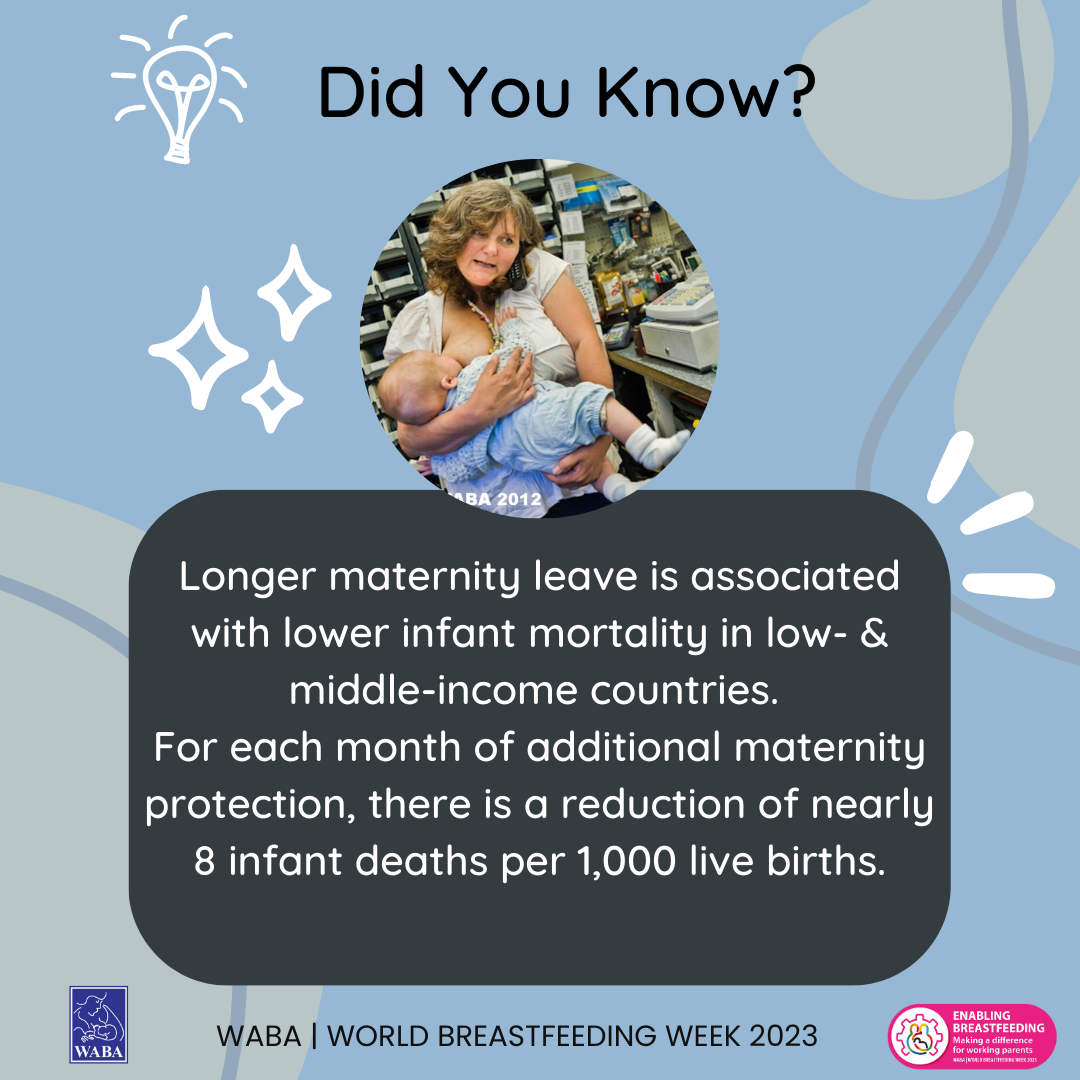
They need reasonable parental leave and help to combine #breastfeeding and work. Furthermore, there is also a need to protect women and families against predatory marketing practices from the commercial milk formula industry by adopting and enforcing the WHO International Code of Marketing of Breastmilk Substitutes.
#WBW2023
Parents need reasonable parental leave & help to combine #breastfeeding & work. There is a need to protect them against predatory marketing practices from the milk formula industry by adopting & enforcing the WHO International Code of Marketing of Breastmilk Substitutes.
#WBW2023
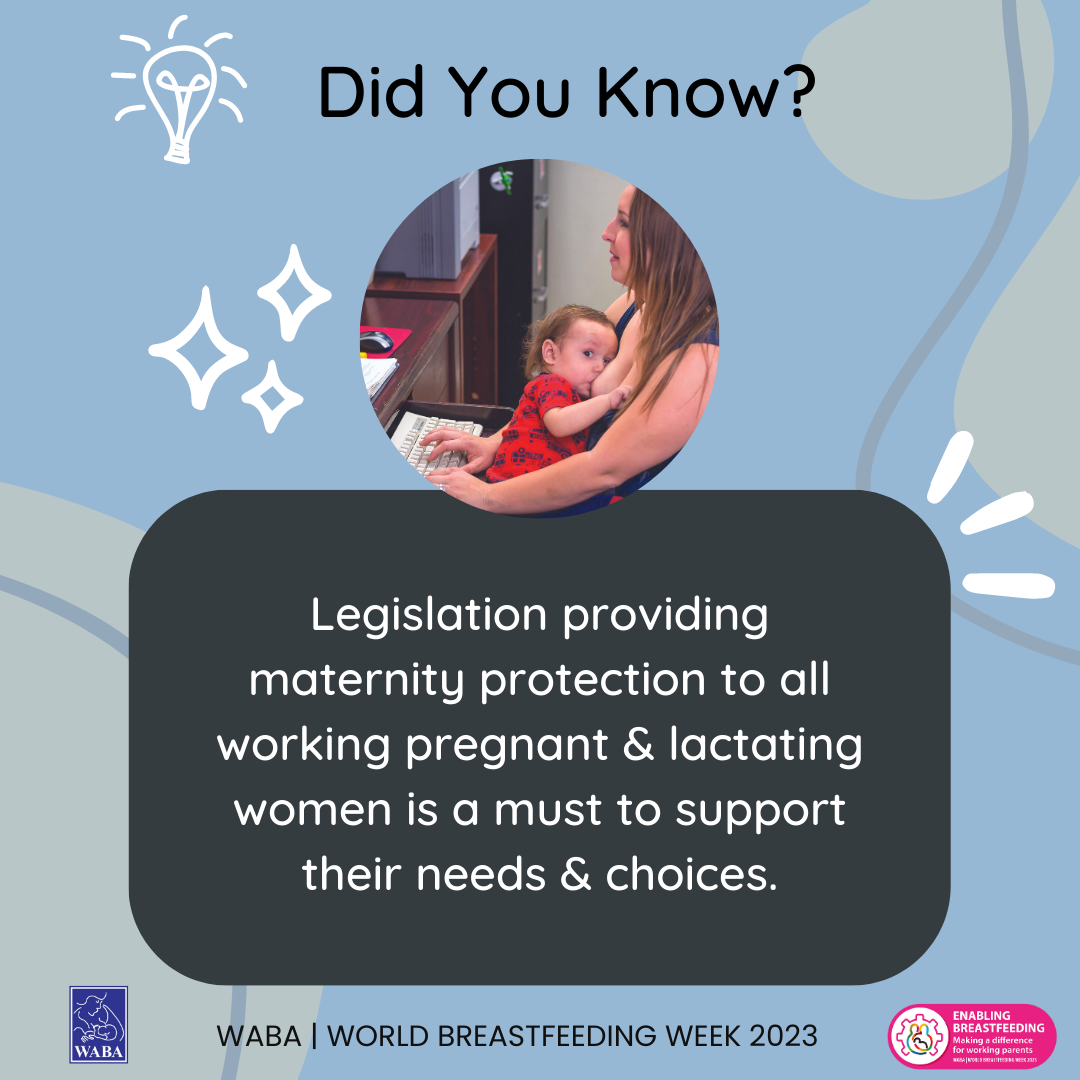
Once a mother returns to work, the provision of hygienic #breastfeeding rooms, storage facilities, breastfeeding breaks, and access to childcare can help her continue breastfeeding for as long as she chooses.
#WBW2023
Once a mother returns to work, the provision of hygienic & #breastfeeding rooms, storage facilities, breastfeeding breaks, and access to childcare can help her continue breastfeeding for as long as she chooses.
#WBW2023
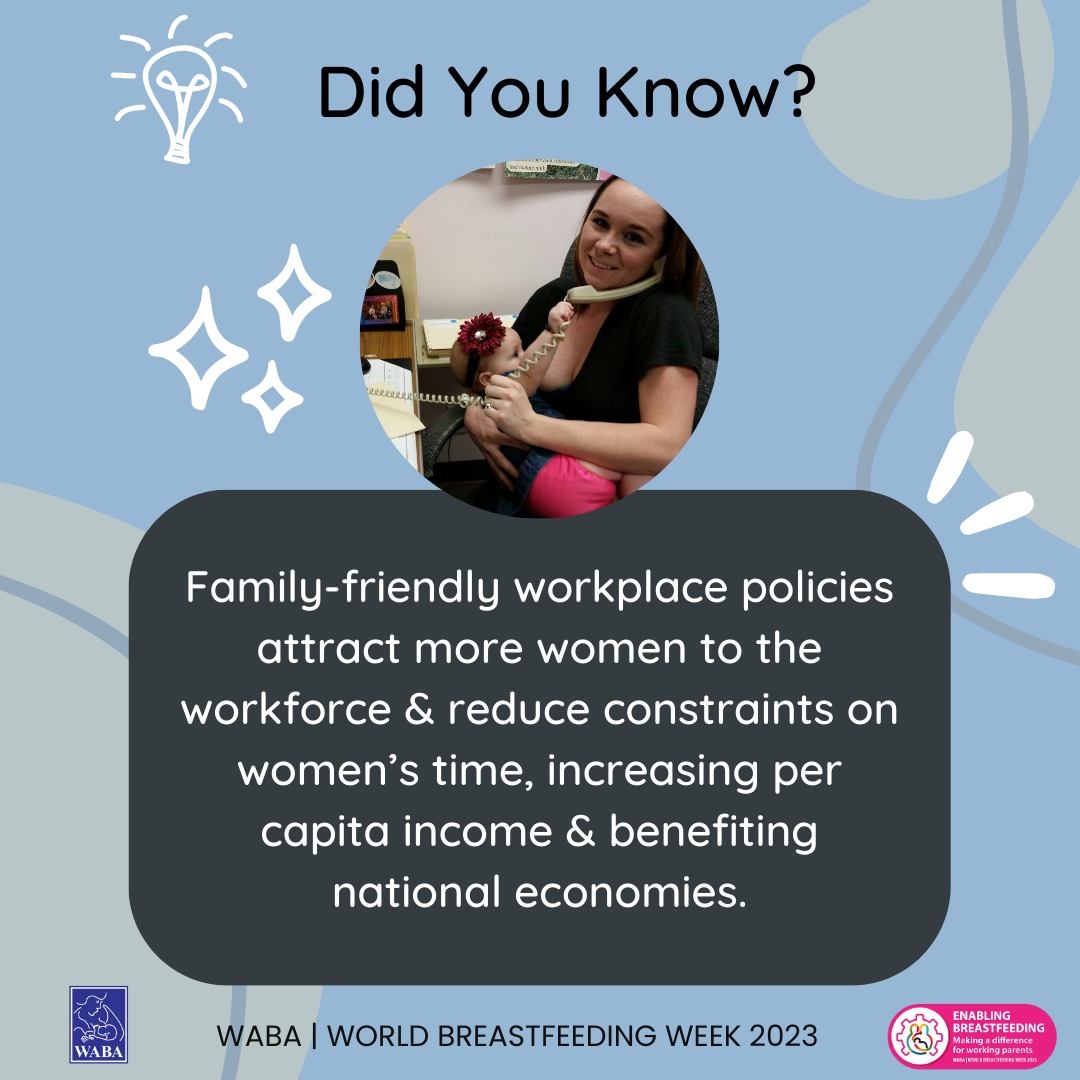
There are still many challenges in making parental leave work to support #breastfeeding. Some parents are not eligible for different kinds of leave, or the payment does not allow for a decent living in some countries.
#WBW2023
There are still many challenges in making parental leave work to support #breastfeeding. Some parents are not eligible for different kinds of leave, or the payment does not allow for a decent living in some countries.
#WBW2023
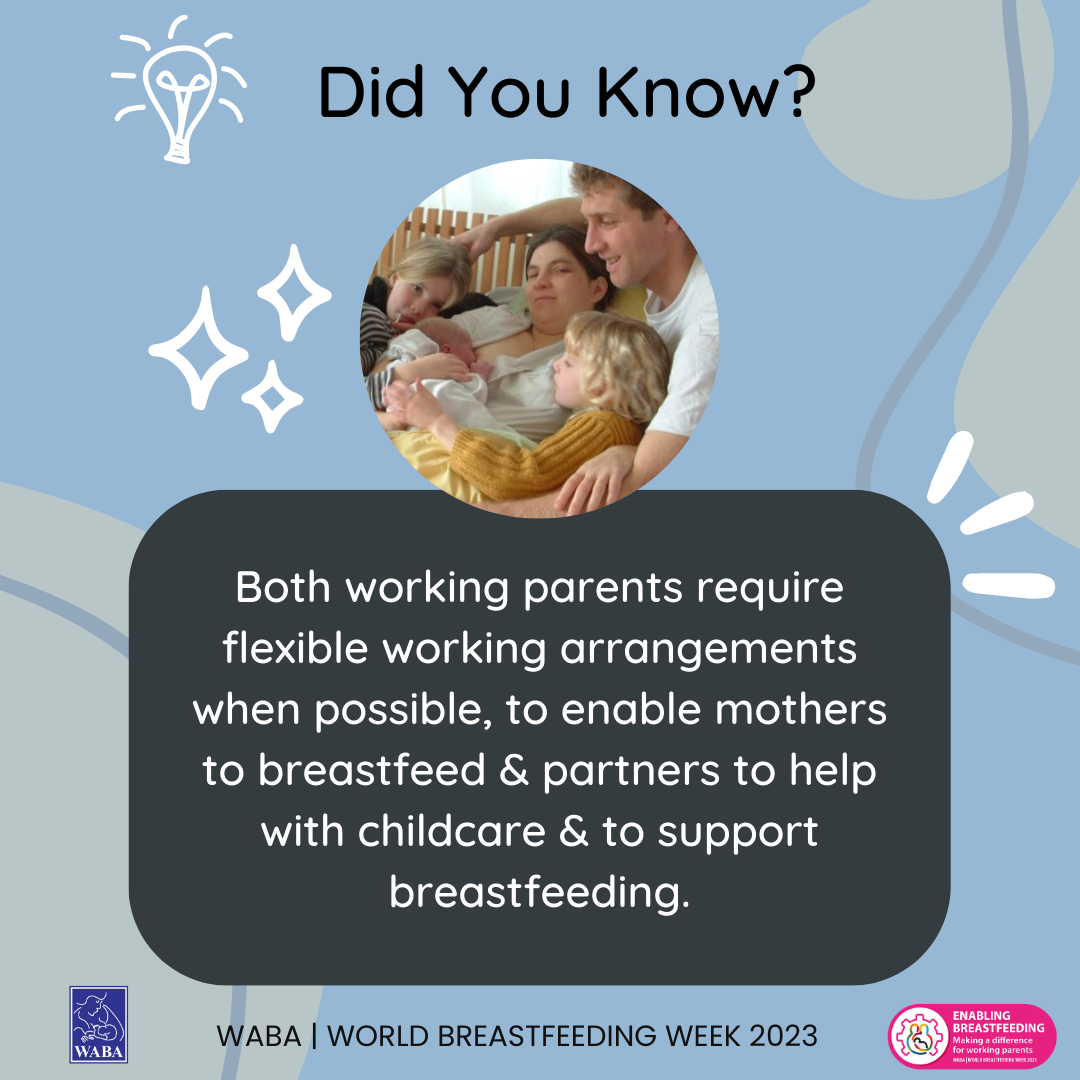
COPYRIGHT NOTICE:
WABA asserts all legal rights and intellectual property rights under the Berne Convention over the World Breastfeeding Week Logos and Campaign Materials. This copyright is subject to fair use, with appropriate attribution to WABA. The logos and materials shall not be used in any way that directly or indirectly damages WABA’s reputation and/or standing, whether by content, context or association. Prior written consent shall always be sought before the logos and materials are used in any commercial activity or adaptations/modifications are made (email to [email protected]). The logos and materials shall not be used in any event and/or activity sponsored, supported or organised by companies manufacturing, distributing or marketing breastmilk substitutes, feeding bottles, or teats. See FAQ on www.worldbreastfeedingweek.org/frequently-asked-questions-faq for further information.
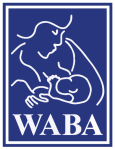
World Alliance for Breastfeeding Action (WABA) is a global network of individuals and organisations dedicated to the protection, promotion and support of breastfeeding worldwide based on the Innocenti Declarations, the Ten Links for Nurturing the Future and the WHO/UNICEF Global Strategy for Infant and Young Child Feeding. WABA is in consultative status with UNICEF and an NGO in Special Consultative Status with the Economic and Social Council of the United Nations (ECOSOC). WABA coordinates the annual World Breastfeeding Week campaign.
CONTACT INFORMATION
- WABA, PO Box 1200 10850 Penang, Malaysia
- +604 - 658 4816
- [email protected]
